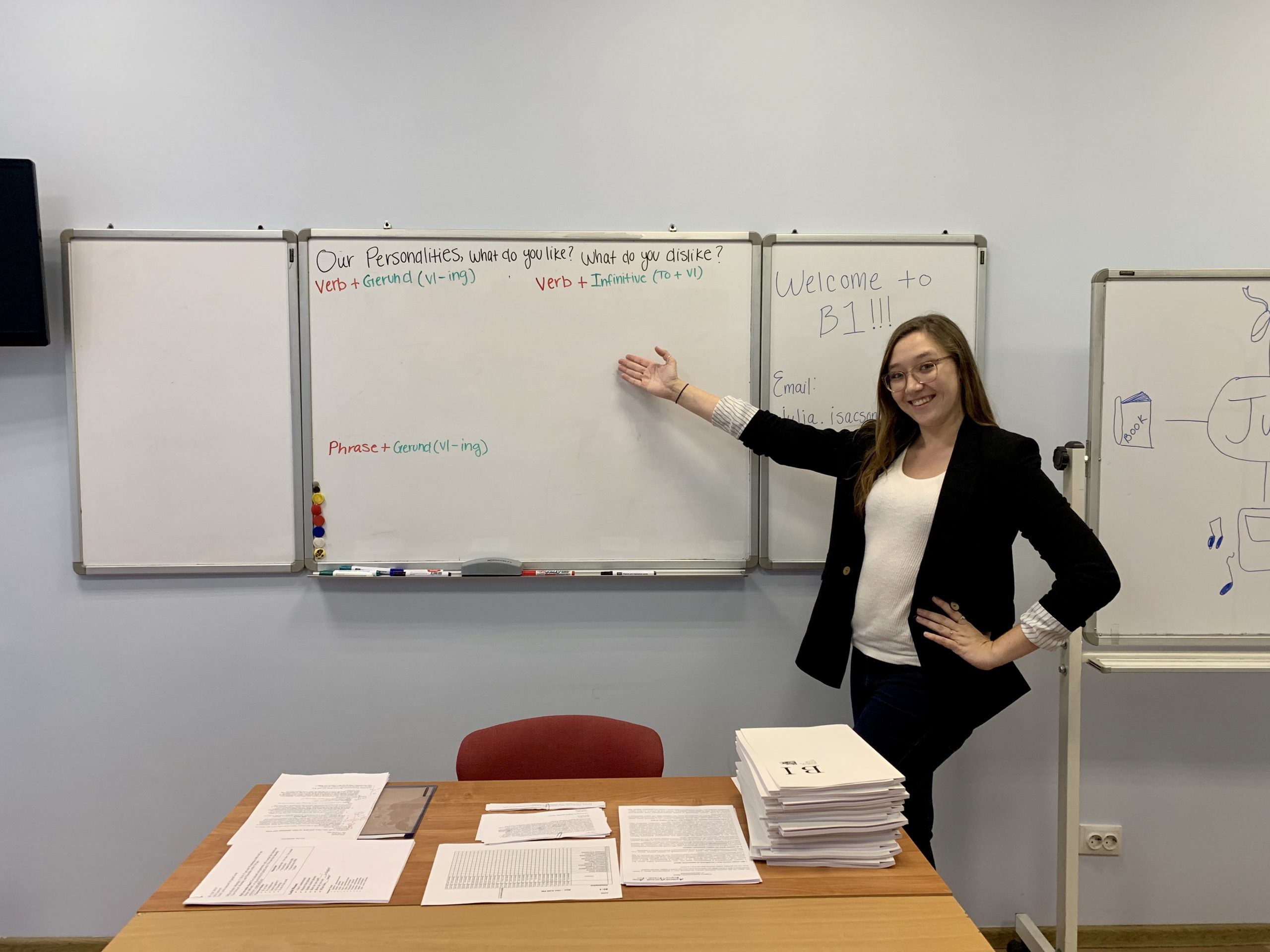Julia Isacson 19 (Russian and Economics) is teaching English at the American Home in Vladimir, Russia, for the 2019-2020 academic year. During her senior year at Dickinson, Julia interned at the Dickinson College Children’s Center, where she taught cultural lessons to the kindergarten class; this work became the foundation for her honors thesis on language and cultural education for early childhood. Here she answers some of our questions about what it is like teaching English as a second language and what life is like in a small Russian city (350,000 people; 200 km east of Moscow).
What does your typical week look like?
Most weeks at the American Home can be pretty busy but exciting, including creating lesson plans, standing up in front of a room full of students creating games, songs, showing videos, and drawing charts and pictures to help students understand the mundane and difficult parts of English grammar. No two weeks are the same. Every week brings a new challenge and reward, and I have grown and changed through my time working here. I have wondered for a while about what a career in teaching might be like, and through my experience standing on the other side of the classroom I have learned much more about the educational process and how to better myself as both a teacher and student. I have an even greater respect for all of the work our teachers and professors do to help us achieve success!
I usually start every day by waking up around 9am and taking some time to either get outside and walk in the wintry air to work or to go to the gym. Two days a week I have a private Russian lesson (which all of the teachers get as a benefit!), and then I begin lesson planning. The teachers usually plan their lessons from 9am to 4 pm. Starting at 4pm, teachers will teach either two to three classes every day that last 90 minutes. The last class ends at 9pm and that is when we head home. On the weekends, teachers will give lectures on American culture, show American movies, host game days and celebrate American holidays with the students.
What is it like living in Vladimir?
It has been really amazing and interesting living in Vladimir, especially comparing it to living in Moscow, when I did my semester abroad program with the Dickinson-in-Moscow program in 2017. I really loved living in both cities. Unlike Moscow, Vladimir is much smaller, but it is very quaint, cute, and peaceful! For a provincial Russian town, there are a lot of things to do here to keep yourself entertained, such as up-and-coming cafes, restaurants, night clubs, movie theaters, shopping centers, sports arenas, an ice rink, and a movie theater. It helps to also have Russian friends and students who can show us places around the city.
What is the most challenging part of your work?
I think one of the most difficult aspects of the position are the long hours. The days can feel challenging and some days you wish you could just get an extra hour of sleep instead of waking up when it is still dark outside in the snow and cold! In addition, one of the challenges I faced in the beginning was the spontaneity of teaching a classroom full of students. It seems easy now to be flexible and improv in class, but as much as you plan for a lesson, how you will present the grammar and what activities you plan to do in class, you never know what questions your students will ask you and how the activities will actually work with your class. Sometimes activities need to be changed to fit the needs of different classes.
What is your favorite part of your job?
One of the coolest aspects of being a teacher is seeing the look on my students’ faces when the lightbulb turns on and they finally understand a grammar point or new word that they have been struggling with for a while. I love to watch how my students create relationships and become friends over the course of the semester, sharing their struggles and triumphs of studying English together. In addition, having to talk for four or five hours every day has really improved my public speaking skills. I even had the opportunity to give a lecture at Vladimir State University! Finally, I feel that my Russian language skills have improved even more by getting the opportunity to be fully immersed in the culture and country every day for a full year.
